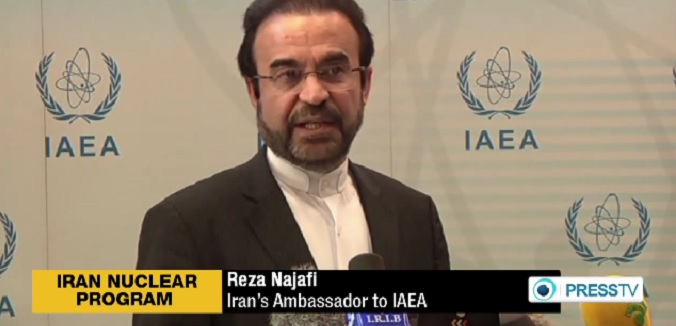Western powers on Thursday criticized Iran for its ongoing refusal to provide the UN’s nuclear watchdog (IAEA) with the cooperation that the agency requires to fully investigate the so-called “possible military dimensions” (PMDs) of Tehran’s atomic program, statements that the BBC conveyed alongside an assessment from officials that ‘a breakthrough in the negotiations is unlikely.’
The European Union also expressed itself displeased with the lack of progress made by the watchdog:
The EU said it was disappointed with the “very limited progress” and insisted that Iran and the IAEA must resolve “all outstanding issues” in order to reach a comprehensive settlement.
Less than two weeks ago, the IAEA released a report concluding that the Iranians were not merely stonewalling on PMD-related issues but were in fact destroying facilities in a way that “likely… further undermined the Agency’s ability to conduct effective verification.”
IAEA chief Yukiya Amano this week had already blasted the Iranians over their foot dragging, declaring at a news conference that “Iran needs to be as transparent as possible to clarify these [PMD] issues” and help move toward a robust verification scheme. The two issues – the full disclosure of PMD-related activities and verification – are intertwined, with disclosure considered to be a vital prerequisite to establishing the scope of Iran’s program and therefore the nature of any future verification regime. Without establishing what nuclear-related activities the Iranian military has been engaged in – activities that are thought to range from uranium processing to nuclear warhead development – investigators and diplomats would have little ability to ensure that such activities had ceased.
Emily Landau, a senior research fellow at Israel’s Institute for National Security Studies, wrote on Thursday that Iran must also be forced to admit its past military-related work so as “to dispense with Iran’s narrative that it has ‘done no wrong’ in the nuclear realm”:
Iran’s narrative plays to its clear advantage. Since 2003, Iran has stuck by its story that it has ‘done no wrong’ in the nuclear realm; it repeats incessantly that no corroborative evidence has been produced that it has worked on a military program. Iran’s ability to hang on to its story is a powerful asset in negotiations, paving the way for the bizarre dynamic whereby the P5+1 negotiators demand that Iran back away from its military ambitions, while Iran denies these ambitions exist.
As incredible as it may sound – and even though most officials (and experts) know that Iran has worked on a military program – the narrative has created enormous difficulties for negotiators over the years. The steadfast Iranian claim has effectively undercut the alternative P5+1 narrative, and has considerably weakened the hand of the international negotiators facing Iran. Indeed, for years the question mark floating over Iran’s military activities has bolstered those who accuse the West of building a false case against Iran, as it did regarding Iraq’s WMD capabilities. Even today, Iran’s dogged narrative enables some of the P5+1 parties – most notably Russia – to continue to insist that there is no evidence of military nuclear activity in Iran.
Iranian negotiators have over the years been unequivocal that Tehran has never engaged in prohibited military-related nuclear work, a conceit that per Landau has “created enormous difficulties for negotiators over the years [and] effectively undercut the alternative P5+1 narrative, and has considerably weakened the hand of the international negotiators facing Iran.”
[Photo: PressTV News Videos / YouTube]




